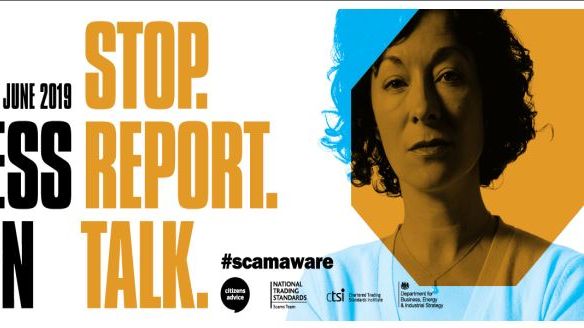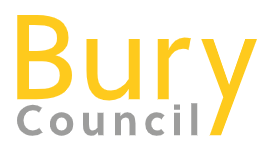
Press release -
Be aware – there are scammers out there
Bury Trading Standards is supporting the Citizens Advice campaign on scams awareness which is running over the next couple of weeks.
This is a yearly campaign to highlight the dangers posed by scammers but also provide advice to keep people safe and feeling confident in what to do when they see a scam.
Scams to watch out for:
- Online shopping and auction scams – with bogus websites, spoof payment services and “second chance offers” to tempt losing bidders with bogus opportunities. Also beware scammers posing as property landlords.
- Investment fraud – also called “boiler room” scams, using high pressure sales techniques to persuade people to buy shares or other investments.
- Dating scams – grooming unsuspecting people into “relationships” before asking them for money.
- Software scams – using well-known company names to ask for credit card details, stealing personal information, and installing malware before charging to remove it.
- Courier scams (a form of vishing) – where people receive unsolicited telephone calls from scammers posing as police or their bank warning of a fraudulent payment on their card or that their card is due to expire. The fraudster will then attend the person’s address or send an innocent courier company driver to collect the card and sometimes provide them with a “replacement” fake card.
Eight common scams reported to Citizens Advice are:
1. Investment - victims are persuaded to invest money into fake ventures and are then unable to get their money back.
2. Fake services - people are offered a service for a fee, only to find the service isn’t real or doesn’t exist at all. Examples include offers to fix computers remotely and fake invoices for advertising.
3. Vishing – con artists cold-call people pretending to be a legitimate company, asking for credit or debit card details, e.g. on the pretence that they need to refund overpaid bills.
4. Doorstep selling - victims are offered goods door-to-door or from the back of a van, which are likely to be counterfeit. Fraudsters selling mattresses, “fresh” fish and cleaning products were all reported to Citizens Advice.
5. Upfront payment or fee - fraudsters ask for a payment in advance for a service or product that never materialises, such as asking for a fee to get a loan, or to pay for a training course to secure a job.
6. Premium rate texts - victims inadvertently agree to receive premium rate texts about games or competitions, usually costing around £4 each.
7. Counterfeit goods - people buy goods at marketplaces or online that turn out to be counterfeit or even stolen. Common products include cigarettes, shoes and clothing, and tickets for events.
8. Goods not received - people place orders for goods which don’t arrive. Scams are often carried out through social media and online auction sites.
Top tips to avoid scams:
- Research the trader - Don’t rush to buy – do some research and check the company’s details.
- Look for the padlock sign in the url bar when buying online - also, the web address should start with ‘https://’ and part of the wording may turn green too.
- Don’t pay by bank transfer - always use a credit card, debit card or PayPal to pay for items bought online.
- Get advice – from https://www.citizensadvice.org.uk/about-us/our-campaigns/all-our-current-campaigns/scams-awareness-campaign-2019/ or report it to Trading Standards through the Citizens Advice consumer service on 03454 04 05 06.
Remember:
- If it sounds too good to be true, it probably is.
- It you haven’t bought a ticket, you can’t win it.
- You shouldn’t have to pay anything to get a prize.
- If in doubt, don’t reply. Bin it, delete it or hang up.
- Persuasive sales patter? Just say: “No thank you”.
- Contacted out of the blue? Be suspicious.
- Never give out your bank details unless you are certain you can trust the person contacting you.
- Take your time – resist pressure to make a decision straight away.
- Never send money to someone you don’t know.
- Walk away from job ads that ask for money in advance.
- Your bank will never attend your home.
- Your bank and the police will never collect your bank card.
- Your bank and the police will never ask for your PIN.
- Computer firms do not make unsolicited phone calls to help you fix your computer.
- Don’t suffer in silence – tell others about scams.
Councillor Jane Black, Bury Council’s cabinet member for corporate affairs and HR, said: “Scams are not a minor blight; they heap misery on people and in some cases they can lead to financial ruin. It’s vital to report scams and spread the word so we can clamp down on con artists and stop others falling into the same traps.”
ENDS
Press release issued: 13 June 2019.
Related links
Topics
Categories
Regions
Find us on: Facebook.com/burycouncil, Flickr.com/buryphotos. @burycouncil and bury.gov.uk

